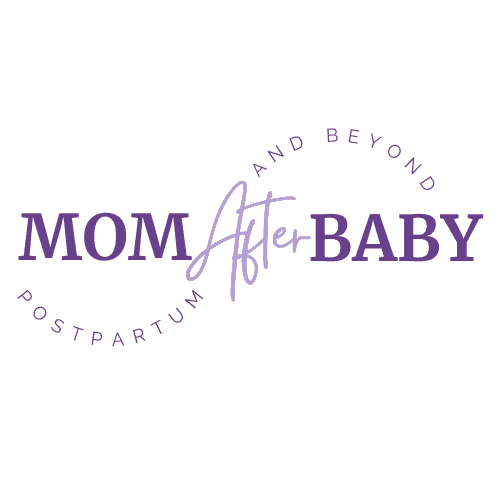How Protein Can Boost Energy Levels for Pregnant Moms
This post may contain affiliate links that I may receive a commission from if you click & buy. In addition, the information on this site is NOT intended to be medical advice. See my full policy for more information.
If you’re expecting a little one, the next few weeks or months will be a transformative time. You’ll experience physical changes and emotional highs and lows. You are probably alternating between wonder, excitement, anticipation, and nervousness.
Indeed this is the time to marvel at the miracle of new life and celebrate the journey to motherhood. But fatigue might be the sneaky culprit dampening your spirits and not allowing you to bask in the joy of pregnancy. It’s understandable. And it’s important to remember that you’re not alone. Most women suffer from fatigue during pregnancy and in the postpartum phase. It’s common and normal, and most importantly, there are ways to overcome this consuming fatigue.
Take naps when possible, and when you feel extra tired. However, as pregnancy progresses, you’ll need to ensure that your nutrient intake is sufficient to support the changes your body is undergoing and the growth of the precious baby in your womb. Nutritional deficiencies can cause weakness and fatigue. Prevent and combat these deficiencies by utilizing both, food sources and prenatal vitamins.
During pregnancy, your body requires substantial amounts of the macronutrient protein. In the first trimester, the higher protein requirements are partly because of the increase in blood volume and partly due to the growth of maternal tissues. During the second and third trimesters, protein requirements are higher due to the baby’s development needs. Women in general require 46 grams of protein daily, but the requirements are more for pregnant women.
How Protein Benefits Pregnant Women
Protein is an essential nutrient for humans; so great is its significance that it’s known as one of the building blocks of life. The benefits of protein to pregnant women include but are not limited to these:
Provides Energy
Protein is a valuable source of energy. It’s especially so when you’re not getting sufficient calories from fats or carbs. If morning sickness makes it difficult for you to eat much of anything, consume protein-rich foods. Protein-rich foods are also often high in other nutrients.
Think of all the things that you can do with more energy during this time. Whether it’s setting up the room of your soon-to-arrive munchkin, getting work commitments out of the way, completing your to-do list of household chores, or even pampering yourself, you’ll be able to do more if you are strategic about your food choices.
Protein also bolsters the immune system, so you won’t fall sick as often. This would also mean less time in bed, and more time out and about. A strong immune system will protect you not only from sickness but also from concerns regarding medications.
Increases Muscle and Bone Strength
Protein helps increase muscle mass and strength. Strong muscles will help you carry the baby in the second and third trimester without excessive fatigue. Consume enough protein regularly and you’ll be able to keep osteoporosis away. Regular protein intake is associated with better bone health. Mama, you’re going to need strong bones to lift and play around with your baby later.
Helps Attain Optimal Weight
According to research, balanced energy-protein supplements can promote optimal gestational weight gain (GWG). Health professionals will be able to inform you about your ideal GWG based on your BMI and specific circumstances, and also how much protein you should consume per meal.
Sufficient protein intake can also increase the likelihood of a healthy birth weight of the baby. The emphasis is on a healthy birth weight because it is likely to positively impact the baby’s health in the future.
Additionally, since protein supports wound healing, maintaining a protein-rich diet can help you beyond pregnancy in your postpartum phase.
Consuming Protein-Rich Foods
Vary your sources of protein for pregnancy. Animal products are complete sources of protein, which means they contain all essential amino acids. Plant sources are usually deficient in one or more amino acids, so they need to be used in combination with each other.

If you’re not vegan or vegetarian, consider eating fish, eggs, and lean meat more. Drink plenty of milk as it’s a rich source of protein. Also, add dairy products like low-fat Greek yogurt and cheese to your diet.
Spinach is a plant-based superfood that not only helps meet your protein needs but also provides vitamin A, folic acid, vitamin C, and iron (fend off that iron deficiency anemia!) Quinoa, almonds, lentils, pumpkin seeds, and peanut butter are some other amazing plant-based protein foods.
Specially formulated protein supplements for women can help you meet dietary requirements, boost energy, and work alongside food sources. Making healthy food choices will be easier if you set yourself up for success by deliberately planning and stocking your pantry. Create your stash of snacks that can provide important nutrients and prove beneficial for both you and your growing baby.
Wrapping Up: How Protein Can Boost Energy Levels for Pregnant Moms
It’s essential to maintain a healthy diet, engage in expert-approved exercises, and monitor your overall health for a healthy pregnancy. Consult your doctor and make sure that the protein supplements you intend to use are right for your specific needs. Remember that supplements offer insurance against the imperfections of diet, but they cannot and should not replace dietary sources of nutrients. Take care of yourself as much as you can, and soon it will be time to welcome your bundle of joy into this world.



